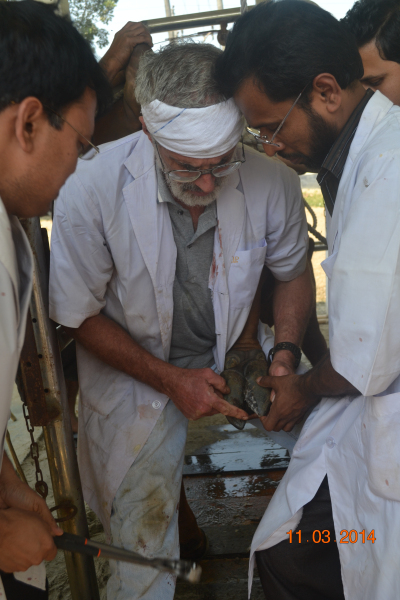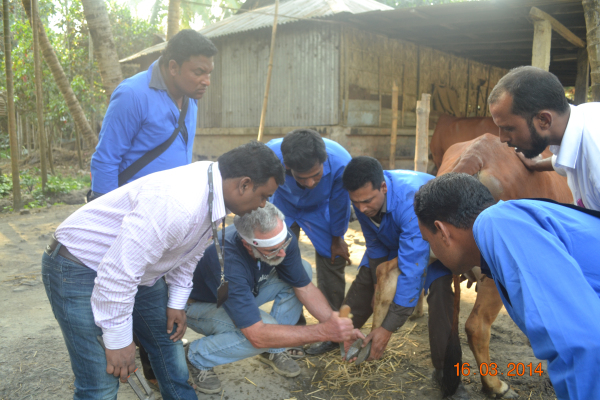
Volunteer Post
Bangladesh: An interesting place to visit
Dan Miller, F2F Volunteer
This week’s blog entry comes from Dan Miller, who just completed his Farmer-to-Farmer volunteer assignment in Bangladesh. Below, he describes some of the sights and scenes that intrigued him during his time in country.
“Bangladesh is an interesting place to visit. In the south there are many tourist places particularly along the beaches. They have spectacular beaches although the surf isn’t like off Hawaii.
In the north there aren’t so many tourist havens, but it is still worth visiting for the experience. Seeing how a society manages to provide for so many people in such a small area gives an idea of the adaptability of mankind. Not only are people able to find a place to live and work, but also they are able to make use of the little land available to grow food for everyone. Not only do they have rice, but fish farming is a major enterprise as is raising goats. Small holder dairy cattle are common and useful for augmenting the family income. Vegetable production is on a limited scale compared to rice, but still the total production is enough to fill the marketplaces.
One thing that attracts interest is the wide, and I mean very wide, variety of vehicles that share the road. In general roads are barely wide enough for two cars to meet going opposite directions, but busses, trucks, and cars share the road with bicycles, motorcycles, rickshaws, and several styles of motorized small transport. It is an experience worth seeing.
The production of clothes is a major export earner and employer of manual labor, but they also have a relatively large pharmaceutical manufacturing industry that earns foreign exchange. Agriculture is still the biggest employer, with a lot of their agriculture relying on manual labor. Rice production is very labor intensive and small scale dairy and livestock production also demands a certain amount of labor. The production of vegetables of various kinds demands a certain amount of labor, especially weeding. The use of insecticides is common and one of the areas urgently needing attention is the development of sustainable agriculture with an integrated pest control program. Their universities produce a lot of trained graduates, but I’m not sure that their economy is able to absorb all of them into what they’ve been trained for. Some areas have better luck than others.
It’s a booming place with lots of interesting stuff to do and to get involved in.”
During his assignment, Dan trained livestock technicians on hoof care and disease management for cattle, sheep, and goats.
Here are some photos of him in action:


